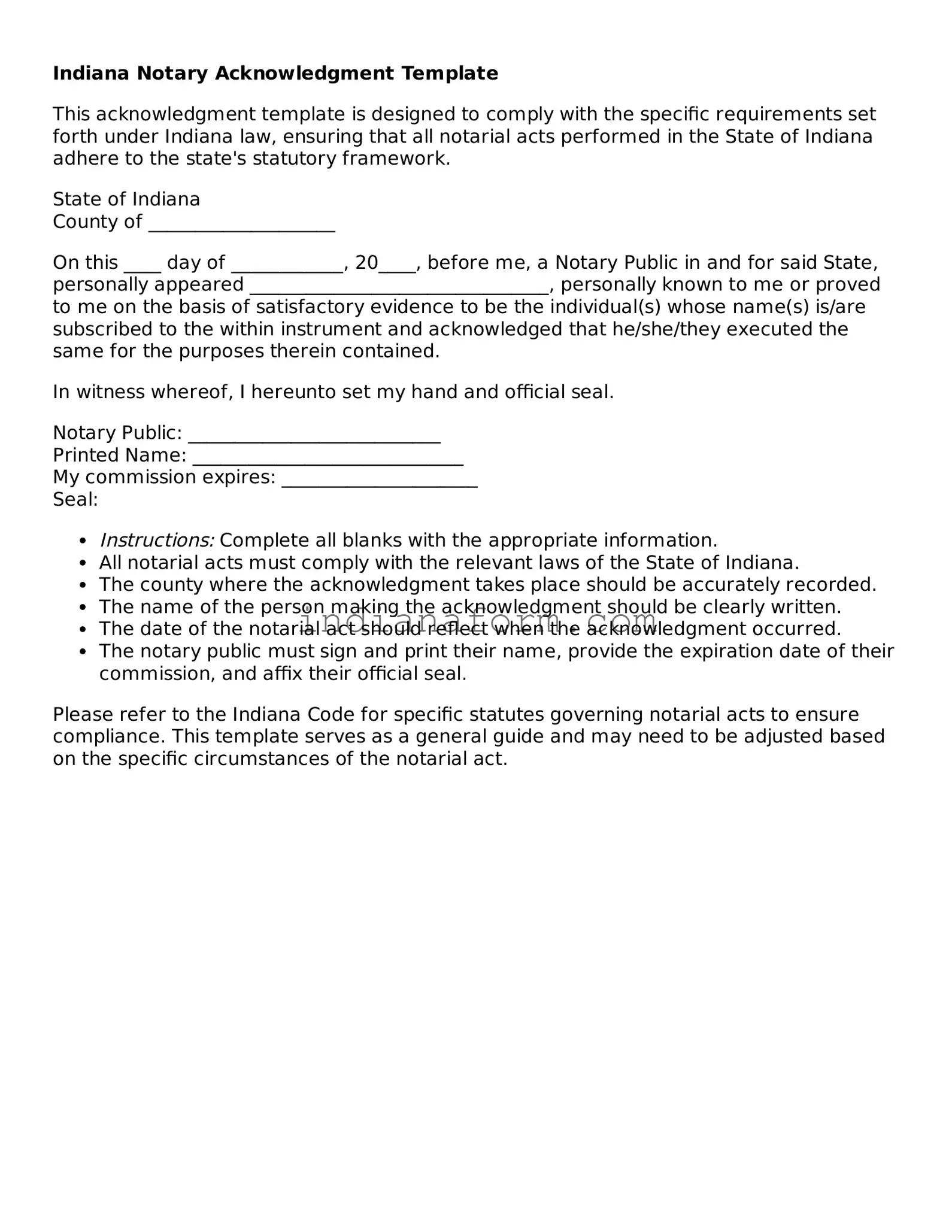Indiana Notary Acknowledgement Template
The Indiana Notary Acknowledgement form is a crucial document used to verify the authenticity of a signer's signature on official documents. It serves as evidence that the signer appeared before a notary and acknowledged they signed the document willingly and under their own power. This process ensures the integrity and legal standing of the document, making it a fundamental step in many legal, financial, and real estate transactions.
Fill Out Your Document Online

Indiana Notary Acknowledgement Template
Fill Out Your Document Online

Fill Out Your Document Online
or
⇓ Notary Acknowledgement PDF Form
Don’t stop halfway through your form
Edit your Notary Acknowledgement online and get it downloaded.